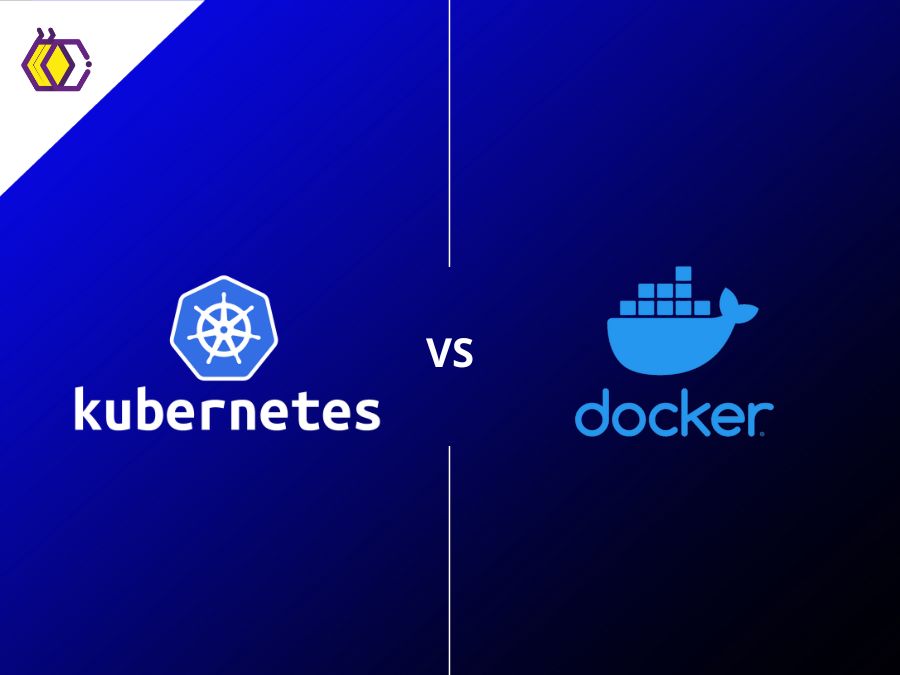

Kubernetes x Docker
(8 minutes of reading) Kubernetes and Docker are two technologies that have become extremely popular in the world of containerization and software infrastructure. Both have related purposes but are used for different and complementary tasks. This article is a basic comparison between the two. Come read to understand more! DOCKER Docker is a platform that allows developers to create, deploy, and run containerized applications. But, before we delve deeper into the subject, do you know what a container is? A container is a standard unit of software that packages code and all its dependencies so that the application runs quickly and reliably in any environment. ADVANTAGES OF DOCKER 1- Isolation: Docker containers ensure that applications work in isolated environments, ensuring that they do not interfere with each other. 2- Portability: Once an application is containerized with Docker, it can run in any environment that supports Docker, be it on-premises, in a data center or in the cloud. 3- Efficiency: Containers are lighter than traditional virtual machines and start much faster. 4- Consistent development: Developers can create containers locally, ensuring that the environment is the same at all stages of development and production. KUBERNETES Kubernetes, often abbreviated as K8s, is an open-source platform for automating the deployment, scaling, and operation of containerized applications. It groups containers that make up an application into logical units for easier management and discovery. ADVANTAGES OF KUBERNETES 1- Automation: Kubernetes can automatically scale applications based on demand, restart containers that fail, and distribute applications across different resources. 2- Load balancing: Kubernetes can distribute network traffic to ensure that load distribution is efficient. 3- Self-repair: Kubernetes can restart containers that fail, replace containers, and even replace containers that fail. 4- Storage Management: It can automatically assemble a storage system of your choice, be it local storage, a cloud provider, or a network. KUBERNETES X DOCKER: WHICH ONE TO USE? The question of "which is better" is a bit misleading as Kubernetes and Docker are not mutually exclusive. In fact, they are often used together. While Docker focuses on creating and running containers, Kubernetes focuses on orchestrating containers in a production environment. For small projects or for learning, Docker may be sufficient. However, as applications grow and require high availability, scalability and more robust management, Kubernetes becomes an essential tool. While Docker by itself is a platform for containerization, it also has its own orchestration tool called Docker Swarm. So, when we talk about the direct comparison between Kubernetes and Docker in terms of orchestration, we are really comparing Kubernetes and Docker Swarm. Here are some comparisons between Kubernetes and Docker Swarm: 1- Ease of Use: Docker Swarm is generally considered simpler and more straightforward in its configuration and operation. This can be particularly attractive for smaller teams or less complex projects. 2- Scalability: Kubernetes is often cited as the most robust solution for large-scale environments. It offers a wide range of features and integrations that are particularly useful in complex, high-traffic setups. 3- Flexibility of Deployment: Kubernetes is more flexible in terms of where it can be deployed. It can be used with many cloud service providers, while Docker Swarm is more closely tied to the Docker platform itself. THE COEXISTENCE OF DOCKER AND KUBERNETES Many organizations do not make a strict choice between Docker and Kubernetes; they use both. Docker is used to create and manage individual containers, while Kubernetes is used to orchestrate and manage groups of containers in production. For example, a developer can use Docker in their local environment to develop and test an application. Once the application is ready for production, it can be deployed to a Kubernetes cluster for management and scaling. COMMUNITY AND SUPPORT Both Docker and Kubernetes have active and robust open-source communities. However, due to massive adoption and support from major industry players (such as Google, Microsoft, Amazon, among others), Kubernetes has seen rapid growth in terms of innovations, plugins, and third-party integrations. CONCLUSION It's not about choosing between Kubernetes and Docker, but rather understanding how they can work together to provide a complete solution for application containerization and orchestration. While Docker provides the container platform and technology, Kubernetes offers the tool to manage and orchestrate these containers in a production environment. The choice between Docker (or Docker Swarm) and Kubernetes is not a matter of one being "better" than the other in all scenarios. Instead, it's about which solution best meets the specific needs of a project or organization. For local development and smaller projects, Docker can be more than enough. For large-scale deployments, especially those that require high availability and complexity, Kubernetes is often the preferred choice. However, the technological landscape is constantly evolving. Organizations should stay up to date on new features and enhancements offered by both platforms and consider their individual needs and team experience when making technology decisions. And there? What did you think of our content? Be sure to follow us on social media to stay well-informed!
Share this article on your social networks:
Rate this article:
[yasr_visitor_votes size=”medium”]



